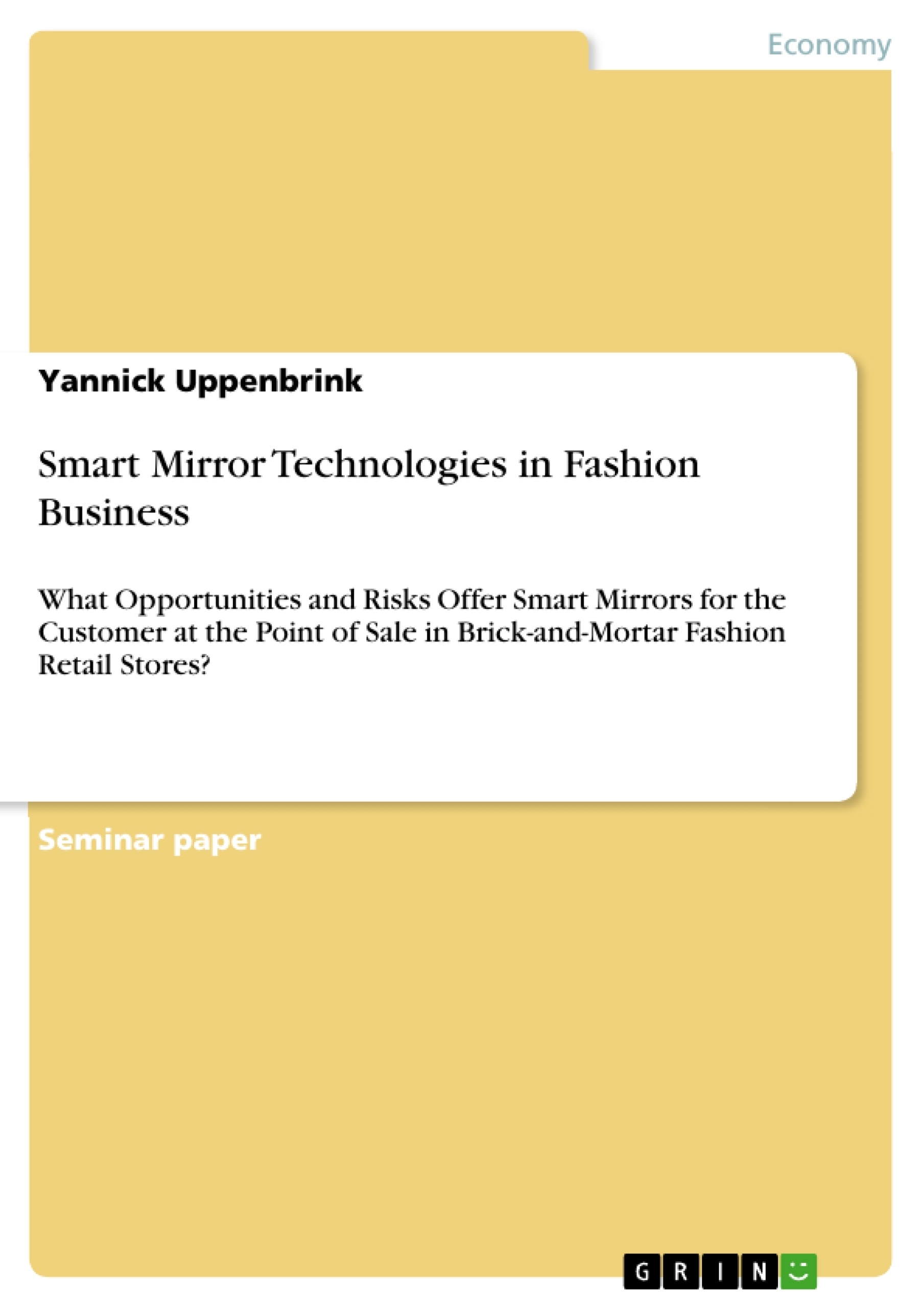Due to digitalization, the growth of digital business models, and the ongoing rise of e-commerce in recent years, stationary fashion stores face enormous challenges. In this context, the concept of so-called ‘Smart Digital Stores’ is seen as one promising way to breathe new life into traditional clothing retail. By implementing new smart and digital tools into stationery shopping surroundings, fashion retailers could be enabled to create ‘new’ and unique shopping experiences to – in fact – keep contact with pure and part online competitors.
First, this paper tries to examine the concept of ‘Smart Digital Fashion Stores’ by exploring the most promising digital initiatives as well as their key benefits and risks. In the second step, the opportunities for brick-and-mortar fashion retailers especially given by so-called ‘Smart Mirror Technologies’ will be investigated. In contrast to research works done to date which predominantly focused on chances due to digital tools in general respectively for the retailer, this paper pays attention to the customer site. The aim is to explore possible benefits as well as risks of digital features for the customer at the Point of Sale.
Inhaltsverzeichnis (Table of Contents)
- Introduction
- Literature Status and Review
- Smart Technologies in Fashion Retail
- Smart Digital Fashion Stores
- State of the Art: Smart Retail Technologies in Fashion
- Smart Mirror Technology in Fashion Retail
- Definition
- Advantages and Chances of Smart Mirrors in Fashion Retail
- Risks and Challenges of Smart Mirrors in Fashion Retail
- Empirical Method
- Empirical Analyzation
- Empirical Findings
- Discussion of Empirical Findings
- Conclusion
Zielsetzung und Themenschwerpunkte (Objectives and Key Themes)
This paper explores the concept of "Smart Digital Fashion Stores" and examines the specific opportunities and risks that "Smart Mirror Technologies" offer customers at the point of sale in brick-and-mortar fashion retail stores. The paper aims to provide a customer-centered perspective on the implementation of digital tools in fashion retail environments.
- The emergence of "Smart Digital Fashion Stores" as a response to the challenges faced by stationary fashion retailers in the digital age.
- The benefits and risks associated with "Smart Mirror Technologies" for customers at the point of sale.
- The potential for "Smart Mirrors" to enhance the customer shopping experience.
- The role of data protection and data collection in the implementation of "Smart Mirror Technologies."
- The impact of "Smart Mirrors" on the role of sales staff in brick-and-mortar fashion stores.
Zusammenfassung der Kapitel (Chapter Summaries)
- Introduction: This chapter provides an overview of the research topic, highlighting the challenges faced by traditional fashion retailers in the era of digitalization and e-commerce. It introduces the concept of "Smart Digital Stores" and outlines the specific focus of the paper on "Smart Mirror Technologies" from a customer-centric perspective.
- Literature Status and Review: This chapter presents a comprehensive review of existing literature on the topic of "Smart Digital Fashion Stores" and "Smart Mirror Technologies" in fashion retail. It discusses the current state of research and identifies key findings and trends relevant to the research question.
- Smart Technologies in Fashion Retail: This chapter delves into the concept of "Smart Digital Fashion Stores" and explores the most promising digital initiatives, their benefits, and potential risks. It also provides an overview of the state-of-the-art in smart retail technologies used in the fashion industry.
- Smart Mirror Technology in Fashion Retail: This chapter focuses specifically on "Smart Mirror Technology" in fashion retail. It defines the technology, examines its advantages and chances for retailers and customers, and discusses the associated risks and challenges.
- Empirical Method: This chapter describes the methodology used in the research, outlining the empirical approach and the data collection methods employed, including an online questionnaire conducted with 100 participants.
- Empirical Analyzation: This chapter presents and analyzes the findings from the empirical research, examining the data collected through the online questionnaire and drawing insights about customer perceptions of "Smart Mirror Technologies" and their potential impact on the shopping experience.
Schlüsselwörter (Keywords)
This research paper focuses on the intersection of digital innovation and the traditional fashion retail experience. Key concepts explored include: brick-and-mortar fashion stores, fashion retail, Smart Stores, Smart Mirrors, Smart mirror fashion technology, digitalization, e-commerce, customer experience, data protection, data collection, and the role of sales staff in the digital age.
- Quote paper
- Yannick Uppenbrink (Author), 2022, Smart Mirror Technologies in Fashion Business, Munich, GRIN Verlag, https://www.grin.com/document/1240199




